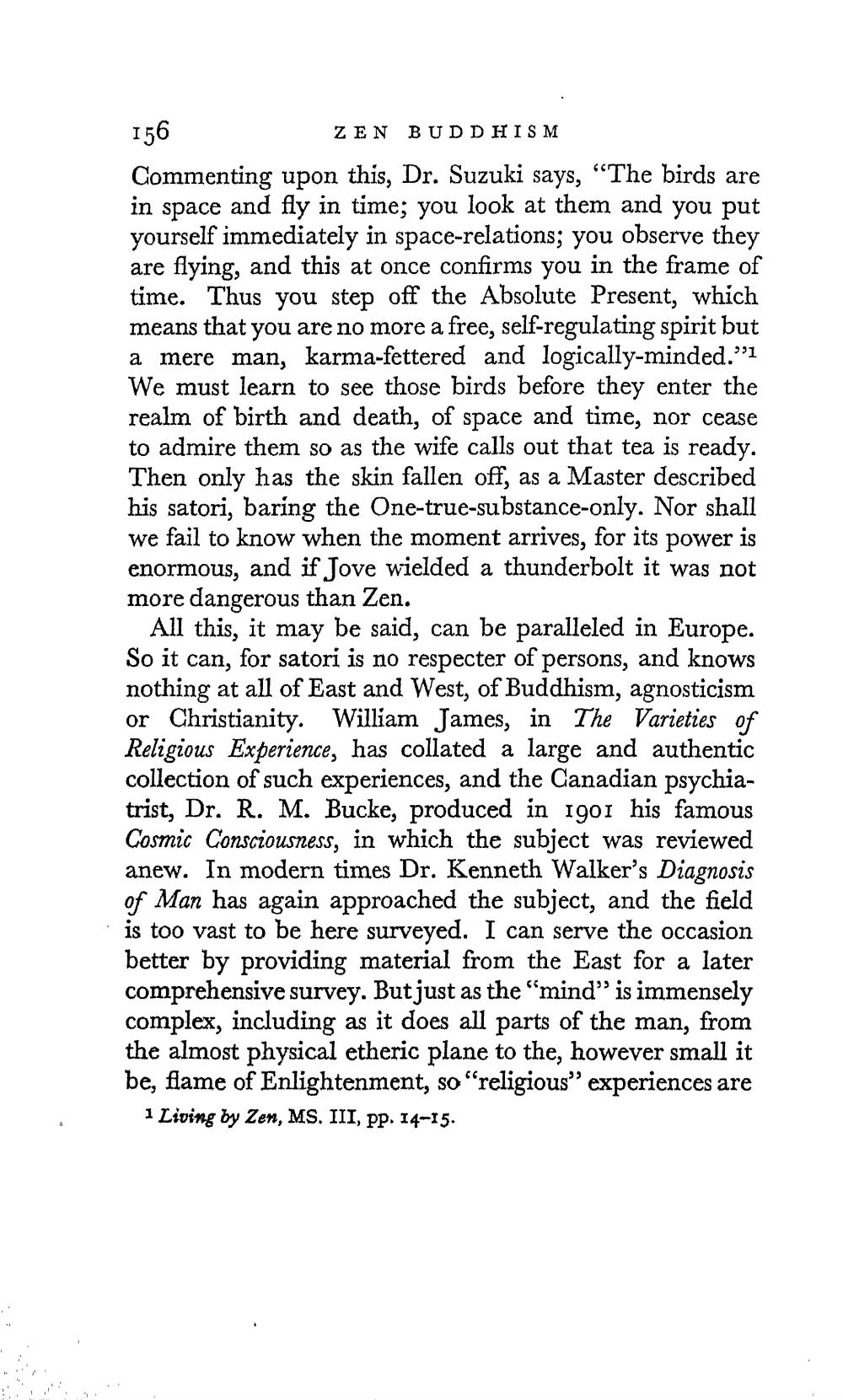________________
156
ZEN BUDDHISM Commenting upon this, Dr. Suzuki says, "The birds are in space and fly in time; you look at them and you put yourself immediately in space-relations; you observe they are flying, and this at once confirms you in the frame of time. Thus you step off the Absolute Present, which means that you are no more a free, self-regulating spirit but a mere man, karma-fettered and logically-minded."'1 We must learn to see those birds before they enter the realm of birth and death, of space and time, nor cease to admire them so as the wife calls out that tea is ready. Then only has the skin fallen off, as a Master described his satori, baring the One-true-substance-only. Nor shall we fail to know when the moment arrives, for its power is enormous, and if Jove wielded a thunderbolt it was not more dangerous than Zen.
All this, it may be said, can be paralleled in Europe. So it can, for satori is no respecter of persons, and knows nothing at all of East and West, of Buddhism, agnosticism or Christianity. William James, in The Varieties of Religious Experience, has collated a large and authentic collection of such experiences, and the Canadian psychiatrist, Dr. R. M. Bucke, produced in 1901 his famous Cosmic Consciousness, in which the subject was reviewed anew. In modern times Dr. Kenneth Walker's Diagnosis of Man has again approached the subject, and the field is too vast to be here surveyed. I can serve the occasion better by providing material from the East for a later comprehensive survey. Butjust as the "mind" is immensely complex, including as it does all parts of the man, from the almost physical etheric plane to the, however small it be, flame of Enlightenment, so "religious" experiences are
1 Living by Zen, MS. III, PP. 14-15.




